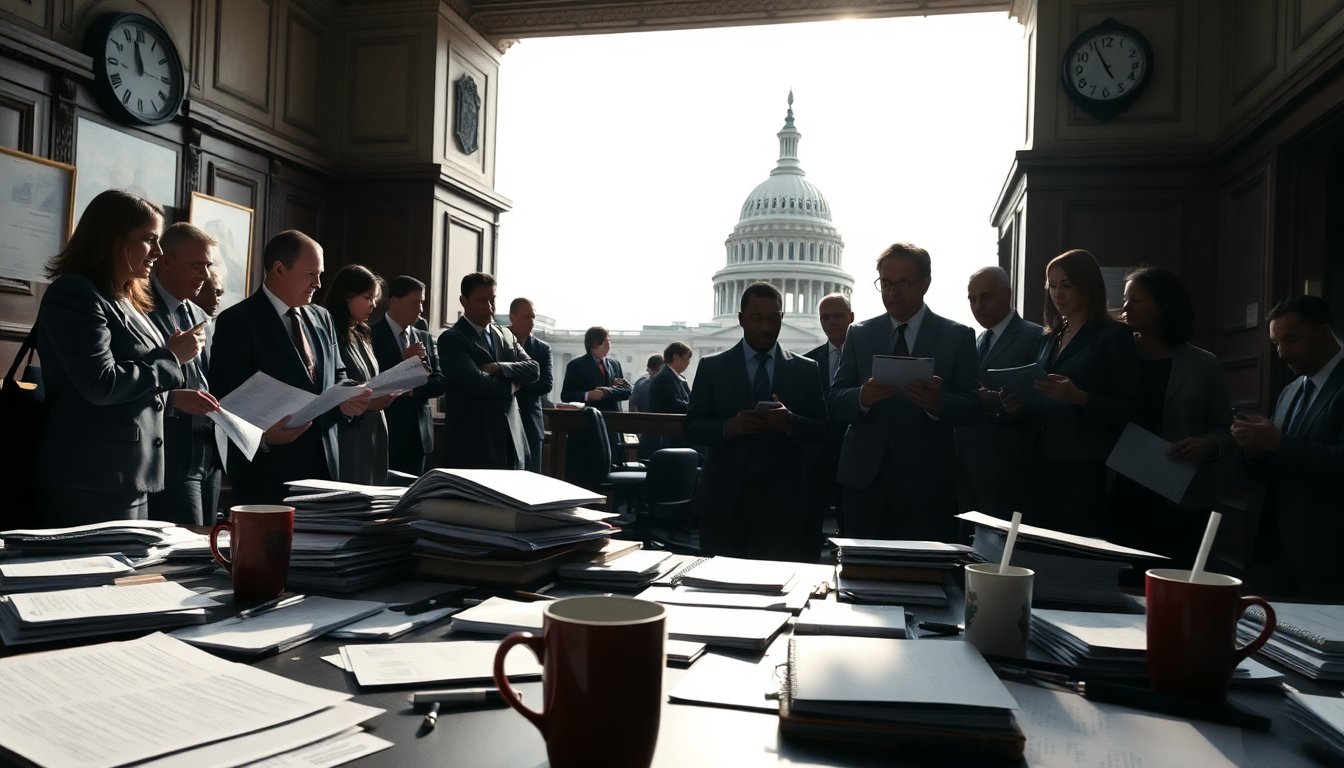Table of Contents
On a recent segment with ABC News anchor George Stephanopoulos, House Speaker Mike Johnson from Louisiana discussed the implications of a partial government shutdown. This situation has sparked intense debate, particularly among Democratic leaders, who may be at a disadvantage in the ongoing political struggle.
The potential fallout from this shutdown is multifaceted, affecting not only federal employees but also shaping public perception and political capital. The stakes are high for both parties, especially for the Democrats, who may find it challenging to maintain their messaging amid the turmoil.
Democrats and the risks of a shutdown
Many analysts argue that Democrats are taking a significant gamble by allowing the shutdown to happen. They are navigating a landscape where former President Donald Trump dominates media narratives, making it difficult for Democratic leaders like Hakeem Jeffries and Chuck Schumer to gain traction or sway public opinion.
While some citizens express frustration with both parties for their failure to reach a consensus, Republicans have effectively shifted blame toward the Democratic Party for initiating the shutdown. During a recent White House briefing, figures such as JD Vance and Karoline Leavitt reiterated claims that Democrats support healthcare for undocumented immigrants, a statement widely debunked as misinformation.
The narrative control challenge
The Washington Post recently criticized Democrats, asserting they fell into a trap of their own making, similar to previous instances where the House Freedom Caucus misjudged their political leverage during funding disputes. This criticism underscores the precarious position Democrats find themselves in, often unable to effectively counter the Republican narrative.
In response, Jeffries accused Republicans of neglecting the healthcare needs of working-class citizens, claiming they impose an extreme agenda on the public. However, this message lacks the impact needed to shift the narrative in their favor.
Political maneuvering and implications
As the shutdown progresses, the immediate consequences are severe. Federal military personnel and many civilians face delayed paychecks, and essential services like food assistance could be jeopardized. Vance and Leavitt attribute these disruptions to the Democrats’ refusal to negotiate, despite assurances that affected workers will receive back pay once the standoff concludes.
Vance suggested that Senate Minority Leader Chuck Schumer is adopting a more progressive stance due to fears of a primary challenge from Rep. Alexandria Ocasio-Cortez. This shift reflects the ongoing struggles within the Democratic Party to maintain unity and control amid internal pressures.
Long-term effects and public perception
Trump has been vocal about the potential long-term consequences of a government shutdown, warning it could lead to irreversible changes detrimental to the Democrats’ agenda. He noted that significant cuts to popular public programs could occur during this period, a move he claims would benefit Republicans in the long run.
Interestingly, while Democrats have often resorted to delaying tactics in the past, they now find themselves on the defensive, struggling to present a clear and compelling argument regarding their healthcare proposals. The complexity of their position may alienate voters who are less informed about the intricacies of these budgetary discussions.
The future of the shutdown
The potential fallout from this shutdown is multifaceted, affecting not only federal employees but also shaping public perception and political capital. The stakes are high for both parties, especially for the Democrats, who may find it challenging to maintain their messaging amid the turmoil.0
The potential fallout from this shutdown is multifaceted, affecting not only federal employees but also shaping public perception and political capital. The stakes are high for both parties, especially for the Democrats, who may find it challenging to maintain their messaging amid the turmoil.1


